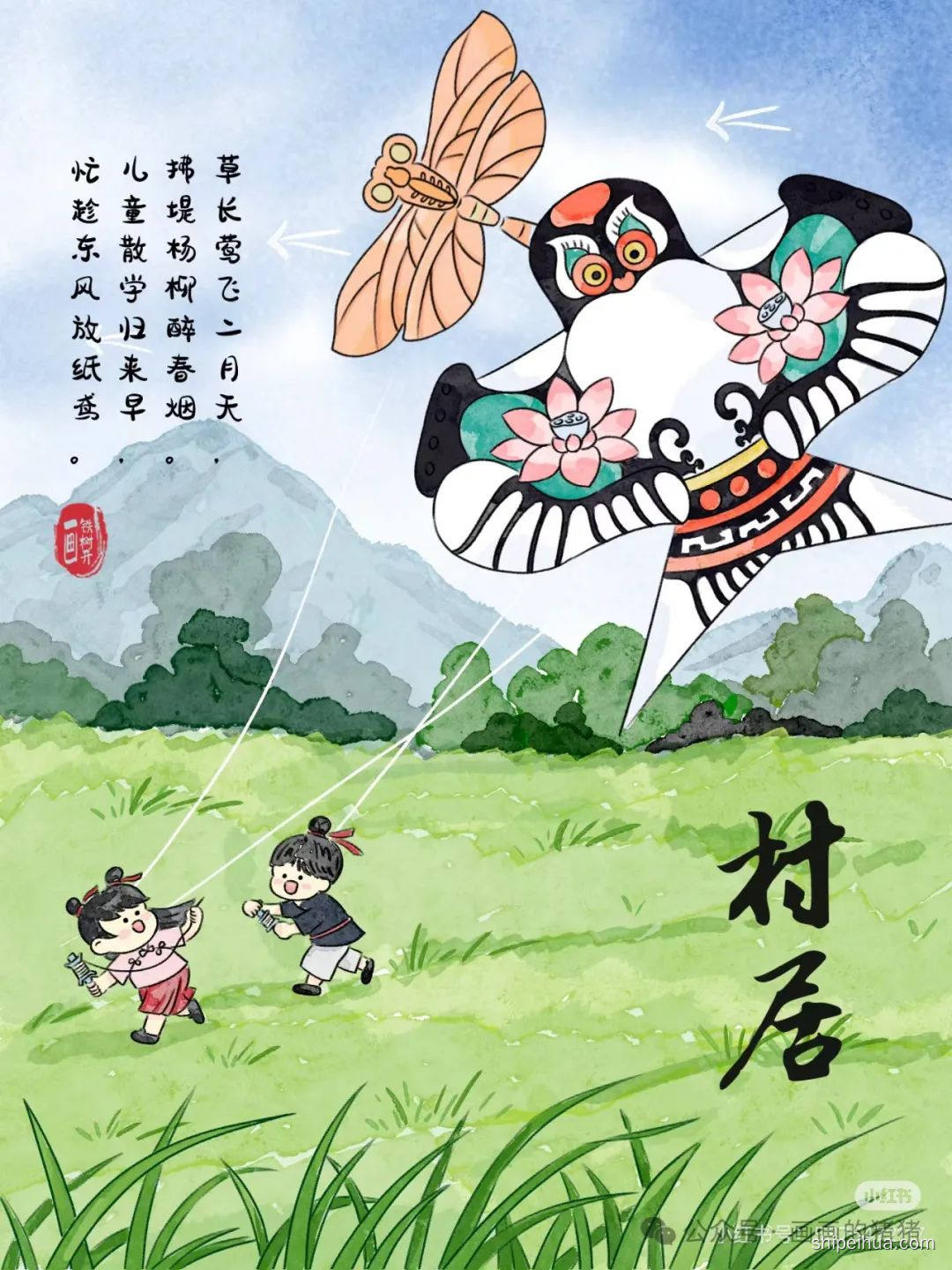Living in a Village
- Poetry of Gao Ding
《村居》

English Translation
Orioles fly over tall grasses in second-month weather;
Willows sweep the riverbank, intoxicated with mist.
Children return home in haste after school,
Eager to fly kites when there is yet wind.
"Living in a Village" (《村居》), in Four-line poems of the Jin, Yuan, Ming and Qing Dynasties (Translated in English)
Children return home in haste after school,Eager to fly kites when there is yet wind.
中文原文( Chinese )
草长莺飞二月天,拂堤杨柳醉春烟。
儿童散学归来早,忙趁东风放纸鸢。
Pre:No Data
Next:No Data
- Why Chinese poems is so special?
- The most distinctive features of Chinese poetry are: concision- many poems are only four lines, and few are much longer than eight; ambiguity- number, tense and parts of speech are often undetermined, creating particularly rich interpretative possibilities; and structure- most poems follow quite strict formal patterns which have beauty in themselves as well as highlighting meaningful contrasts.
- How to read a Chinese poem?
- Like an English poem, but more so. Everything is there for a reason, so try to find that reason. Think about all the possible connotations, and be aware of the different possibilities of number and tense. Look for contrasts: within lines, between the lines of each couplet and between successive couplets. Above all, don't worry about what the poet meant- find your meaning.
Famous Chinese Poems
- Song of Qiupu XV
- Song of Qiupu XIV
- Song of Qiupu XIII
- Song of Qiupu XII
- Sobering from Drunkenness in Spring Day
- Lodging with the Master of the Clear Stream
- An Impromptu Verse After Being Drunk on Tongguan Mountain
- Song of a Southern Maiden: Winter
- Staying Overnight with a Friend
- The Sick Horse
You May Also Like